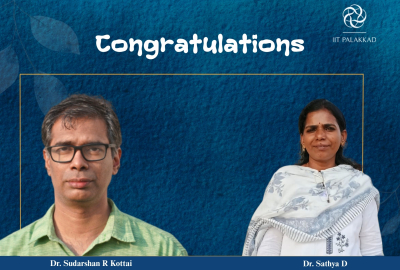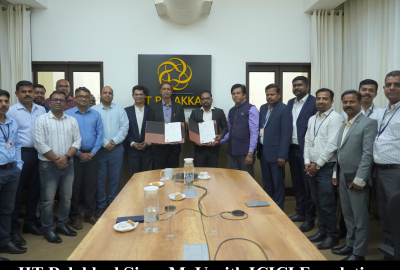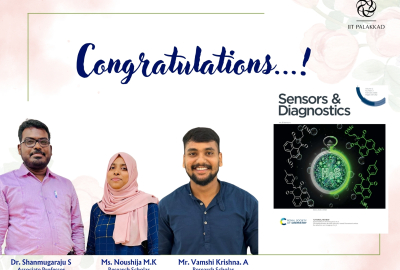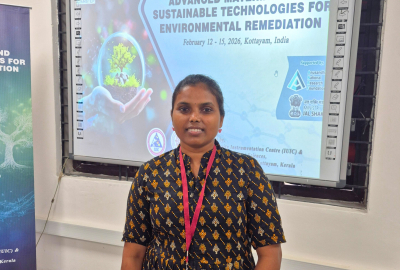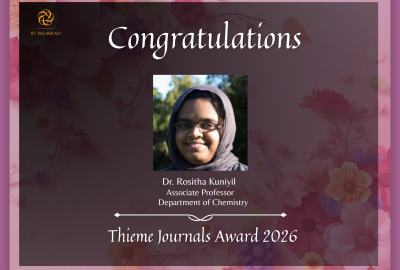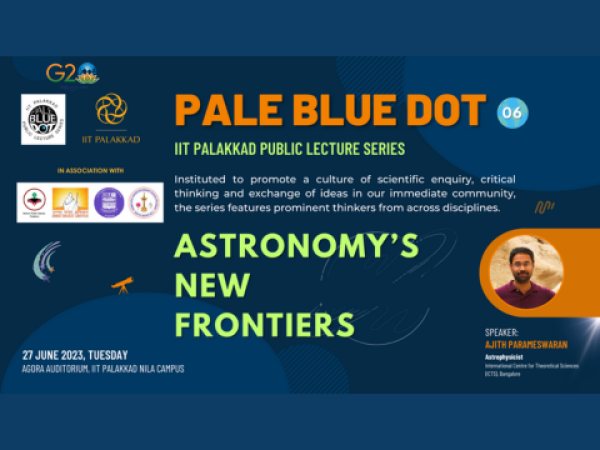
Pale Blue Dot: IIT Palakkad walks through the different frontiers of Astronomy with Dr. Ajith Parameshwaran
The sixth edition of Pale Blue Dot, The Public Lecture series of IIT Palakkad in association with the Pandit Motilal Govt. Higher Secondary School and Department of Physics, Government Victoria College was organized on the campus today. This enlightening event delved into the different frontiers of astronomy, providing a scientific boost to the general public's perception of the universe. Keynote speaker Dr. Ajith Parameswaran, an esteemed astrophysicist from the International Centre for Theoretical Sciences (ICTS) Bangalore, demystified the mysteries surrounding the universe and elucidated the methods used by astronomers to study them. This interactive session was attended by over 400 students from various schools and colleges in the district.
During his captivating lecture, Dr. Ajith presented intriguing examples of various observatories set up in different parts of the world and their implications on our comprehension of the cosmos. "The observation of gravitational waves is the new tool kit for scientists" he expressed optimistically as they eagerly waits for further discoveries in the field. He explained that gravitational waves are disturbances in space time that are produced by the movement/collision of two massive black holes. He highlighted that these breakthroughs are only a tip of the iceberg and expressed optimism for the future of gravitational-wave detectors, emphasizing the construction of new observatories, including one in India.
Ajith Parameswaran, an astrophysicist at ICTS Bangalore, holds an impressive background in gravitational-wave physics and astronomy. He has made significant contributions to the LIGO Scientific Collaboration since 2004 and has received prestigious accolades such as the 2016 Special Breakthrough Prize in Fundamental Physics and the 2016 Gruber Cosmology Prize for his involvement in the discovery of gravitational waves. Recently, he was honored with the TWAS-CAS Young Scientist Award for Frontier Science by the World Academy of Sciences, further solidifying his reputation as a leading figure in his field.

